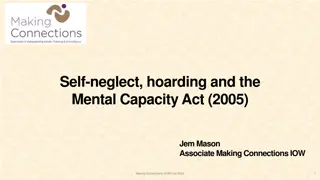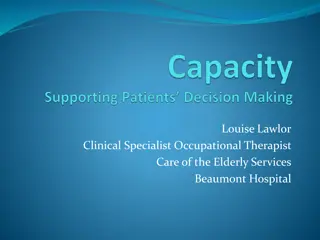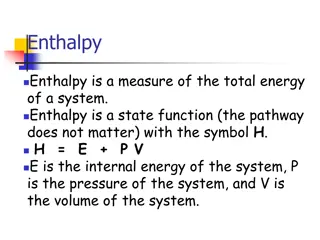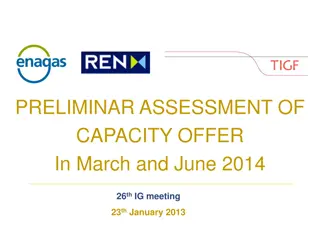
Capacity Assessment in MAID: The Case of Barb
Explore the complex case of Barb, a 77-year-old woman with metastatic cancer seeking Medical Assistance in Dying (MAID). Delve into the ethical considerations, mental health history, and capacity assessment involved in her request.
Download Presentation

Please find below an Image/Link to download the presentation.
The content on the website is provided AS IS for your information and personal use only. It may not be sold, licensed, or shared on other websites without obtaining consent from the author. If you encounter any issues during the download, it is possible that the publisher has removed the file from their server.
You are allowed to download the files provided on this website for personal or commercial use, subject to the condition that they are used lawfully. All files are the property of their respective owners.
The content on the website is provided AS IS for your information and personal use only. It may not be sold, licensed, or shared on other websites without obtaining consent from the author.
E N D
Presentation Transcript
The Uneasy Gatekeeper: Capacity Assessment in MAID June 3, 2017 Justine Dembo, MD, FRCPC Reconnect Integrative Trauma Treatment Center Los Angeles, California Justine.dembo@mail.utoronto.ca
Disclosures No financial disclosures I am a psychiatrist Member of: Physician Advisory Council, Dying With Dignity Canada Joint Centre for Bioethics group and Mental Health Task-Force for MAID Ontario Shores MAID Working Group Physician Advocacy group, Compassion & Choices California
Thanks! Thanks! JCB MAID Task Force group Ruby Shanker Derryck Smith Jocelyn Downie Stefanie Green Kevin Reel The patients I ve assessed
Outline Case presentation Bird s eye view and philosophical considerations Definitions Elements of consent and capacity Capacity assessment beginning to end Documentation Resources and self-care References
The Case of Barb 77-year-old married woman, two step-daughters in 50 s. Independent, self-employed (now off due to illness). Ovarian cancer diagnosed 2003, total hysterectomy/oophorectomy. Recurrence 2006, several courses of chemotherapy, CA125 kept rising. Discontinued chemo 2009 (ineffective and poorly tolerated). Currently severe metastatic cancer, pelvis and peritoneum, severe lymphedema , constant pelvic pressure, severe constipation and urinary retention, weak, exhausted, house-bound. Prognosis 4-6 months (IF surgical intervention).
The Case of Barb Hx MDD & GAD Serious suicide attempt 2009 (OD on barbiturate, intent to die, combined with CO- in garage). Attributes to overwhelm multiple stressors including her fear of death. Hospitalized, psych. admission, then outpatient treatment 1.5 years. Improved, no recurrence. Happily married; no substance use; rheumatoid arthritis; on prednisone, hydrocodone, furosemide; no FHx mental illness or suicide; happy childhood, no hx trauma.
The Case of Barb MSE: Appears stated age. Personable, forthcoming, gaunt upper body, arthritic hands, bilateral leg lymphedema, difficulty walking. Mood sad. Affect variable, laughing on subject of animals, tearful discussing her illness. No SI/HI. Normal speech, TF, perception, cognition. Good insight and judgment, no impulsivity. Requests evaluation for MAID
Philosophical Considerations What are we actually doing? How do we come to terms with being in a powerful position, in a true life and death situation? Tessman:* A moral person experiences deep conflict over difficult decisions. The burdened virtue. How to put patients at ease? Should we be transparent about bias? How to maintain objectivity and self-reflection? Ideal setting? *Tessman Lisa. Burdened Virtues: Virtue Ethics for Liberatory Struggles. Oxford University Press, Oxford, 2005.
Eligibility Reminder Grievous and irremediable Serious/incurable* illness, disease, or disability Advanced state of irreversible decline in capability Enduring physical or psychological suffering, intolerable Natural death reasonably foreseeable** Voluntary, non-coerced Informed Over 18 Eligible for public health services in Canada *Incurable by any means/treatments acceptable to the patient **We are still in the process of negotiating exactly what this means
The Case of Barb Eligible Voluntary Non-coerced (Husband: I am devastated; I don t know how I ll handle this. ) Informed Grievous and irremediable illness Advanced state of irreversible decline in capability Enduring/intolerable suffering Natural death reasonably foreseeable Over 18 Eligible (for services in U.S.A.) Collateral: GP of 6 years, psychiatrist, husband all corroborated her history and capacity.
Informed Consent Information to be Given to Patient Conditions Required 1. Nature of the condition 2. Proposed treatment Risks Benefits 3. Alternate treatments available 4. Outcome with no treatment 1. Linquistic ability to comprehend 2. Adequate disclosure of information 3. Nature and purpose of the proposed treatment or intervention 4. Reasonable alternative to treatment 5. The consequences of refusing diagnostic tests or treatment Neilson G. et.al. Informed Consent to Treatment in Psychiatry , CJP V 60, 4 Approved by Board of CPA May 21, 2014
Capacity Preamble1 All patients, including those with psychiatric illness, are presumed capable unless proven otherwise. Not global: Task-specific Eg. Can be capable with respect to treatment but not finances. Time-specific Can fluctuate over time Competence is often used interchangeably with capacity. Competence is a legal term, encompassing capacity along with other factors such as age.2 1. Neilson G. et.al. Informed Consent to Treatment in Psychiatry , CJP V 60, 4 Approved by Board of CPA May 21, 2014 2. Buchanan, Alec Mental Capacity, Legal Competence and Consent to Treatment, J R Soc Med. 2004 Sept 97(9) 414-420
Basic Components of Capacity Understand the information relevant to making the decision1 History Prognosis Treatment options (comprehensive), risks and benefits Risks and benefits of no treatment Understand that the consequence of MAID is death and irreversible2 DOCUMENT this as well in your assessment Appreciate the reasonably foreseeable consequences of a decision or lack of a decision1 Appreciate how such a decision would apply to the SELF 1. Section 4(1) of the HCCA. 2. CPSO policy http://www.cpso.on.ca/Policies-Publications/Policy/Medical-Assistance-in-Dying
Other Crucial Components Appelbaum, P.S. Assessment of Patients Competence to Consent to Treatment, New Engl J Med 357:18 November 1, 2007
Capacity Assessment: Tools Currently no specific tool required Most authorities leaning toward McArthur Competence Assessment Tool (McCAT-T) Used and measured in forensic populations, psychotic illness, severe mood disorders, and medical disorders without comorbid psychiatric illness. High inter-rater reliability Most psychometric measures but not values, social context, patient narrative* 15-20 mins to administer! Order (covers the 4 components of capacity): Info about patient s illness/disorder is disclosed Examiner describes the treatment options (including no treatment), risks and benefits, alternative treatments Ends with patient expressing a choice Questions within about patients ability to understand (paraphrase) and reason (pt s explanations for choices) 1. Grisso T., Appelbaum P., Hill-Foutouhi C. The McCAT-T: A clinical tool to assess patients capacities to make treatment decisions. Psychiatric Services 1997; 48(11), 1415-9. Ruby Shanker s review of McCAT-T and other tools: http://www.jcb.utoronto.ca/tools/seminars.shtml (March 15 2017) 2.
Other Options and Resources Consider tools as aids to Aid to Capacity Evalution Developed by Joint Center for Bioethics in Ontario Proposes seven questions, has a scoring form They offer a one-hour training program http://www.utoronto.ca/jcb/disclaimers/ace.htm Capacity Assessment, London, Ontario On line powerpoint presentation with extensive references www.community-networks.ca/wp-content/uploads/.../SNSCPresentationApril302010 CPSO 2001 (updated 2015) statement on Consent to Treatment http://www.cpso.on.ca/CPSO/media/documents/Policies/Policy-Items/Consent-To-Treatment.pdf?ext=.pdf Guidelines for Conducting Assessment of Capacity (Ontario 2005) https://www.attorneygeneral.jus.gov.on.ca/english/family/pgt/capacity/2005-06/guide-0505.pdf NICE capacity and consent tool http://www.nicenet.ca/files/NICE_Capacity_and_Consent_tool.pdf CNO (College of Nurses of Ontario) guidelines/statement http://www.cno.org/globalassets/docs/policy/41020_consent.pdf Centre for Effective Practice summary document https://thewellhealth.ca/wp-content/uploads/2016/11/20161118_MAID_Final_Fillable.pdf Incapability Assessments Public Guardian BC (April 2009) http://www.trustee.bc.ca/documents/STA/Incapability_Assessments_Review_Assessment_Screening_Tools.pdf A review of capacity assessment tools (they recommend McCAT for health care decisions) 1. clinical judgment. 2. 3. 4. 5. 6. 7. 8.
Problem: None of these tools (except Trillium s) were developed for decisions about MAID How much does this matter? (Debate Why should this decision be treated any differently from other medical decisions? )
The Case of Barb Components of capacity: Communication: Choice made very clear. Understanding: Diagnosis, prognosis, current treatment, other treatment options and why she does not want them. Knows benefits, risks, alternatives to treatment, no treatment, and MAID. Understands MAID medications and how they work. Knows of palliative care option, knows MAID leads to death, aware of impact on family. Appreciation Reasoning: Logical, clear, carefully considered. I do not want to suffer through invasive surgeries just to be able to pee. I am very independent I want control over when and how I die. I know I cannot control whether or not I die. I am terrified of dying inch by inch. I don t want to die the way my cousins and friend did. Cognition: Intact
Special Considerations for Patients with Mental Illness Factors that could limit capacity: Severe mood disorder Severe anxiety Psychosis Severe personality disorder (?) Dementia Delirium Substance intoxication Intellectual disability Traumatic brain injury
Special Considerations for Patients with Mental Illness 70-80% patients with mental illness are capable with respect to medical decisions.* How to determine whether the mental illness (if currently present) affects capacity: Questions: Do you feel that you deserve to die? How do you imagine other people will feel about your death? Do you feel you are being punished? What do you imagine death will be like? Assess level and direction of hopelessness. Take a full psychiatric history: Screen for paranoid delusions if appropriate: Do you ever feel someone or something wants you to die or is planning to harm you? In patients with active psychotic depression or other psychotic disorders, examine current psychosis as it relates to MAID and death (above questions). *Candia PC et.al. Mental capacity and consent to treatment in psychiatric patients: the state of the research, Current Opinion in Psychiatry 2011, 24:442-446 (courtesy of Derryck Smith).
The Case of Barb Hx MDD, GAD, suicide attempt 2009. MDD: Currently feels very different than prior MDE and SA. Sad about her situation, but mood is variable. No anhedonia, guilt, worthlessness, psychomotor disturbance, good interest, focus, and concentration Hopelessness confined to realistic awareness of prognosis; hopeful for a dignified death. Low energy and appetite, and insomnia, are due to medical factors. Suicidality? I don t want to die; but I know I m going to. GP, husband, and previous psychiatrist have no concerns about capacity.
Special Considerations for Patients with Dementia Mild to moderate dementia can be capable (very delicate balance) MMSE and MOCA of limited utility. Also altered by educational level. MMSE score > 26/30 normal 20-25 mild 11-19 moderate Gray zone at scores 20-22 for capacity1 Capacity can fluctuate day to day. MCCAT-T may be a better test than MMSE3 ACCT Interview (Moye et al. 2006) minimizes focus on memory and accounts for patient s value system.5 1. 2. 3. 4. research needs. Clin Psychol Rev 2006; 26:1054 1077. 5. Moye J., Karel J., Edelstein B., et al. Assessment of capacity to consent to treatment: challenges, the ACCT approach, future directions. Clin Gerontol. 2007 March 3; 31(3): 37 66. Karlawish, JHT et. al. The ability of persons with Alzheimer Disease (AD) to make a decision about taking an AD treatment, Neurology 2005, 64:1514-1519 Lui, VWC et. al. Capacity to make treatment decisions in Chinese older persons with very mild dementia and mild Alzheimer s disease, Am J Geriatr Psychiatry 2009, 17:428-436 Calcedo-Barba A, Garcia-Solano F, Fraguas D, & Chapela E. On measuring incapacity. Current Opinion in Psychiatry 2007; 20(5): 501-506. Moye J, Gurrera RJ, Karel MJ, et al. Empirical advances in the assessment of the capacity to consent to medical treatment: clinical implications and
Other Problem Areas Communication Visual or hearing impairment? Speech impairment? Language barrier? Substance abuse? Not addressed in the literature, for the most part.* Cognitive distortions? We ALL have them. Clinician disagreement (disagree == incapacity). Eccentric or disagreeable patients. Role of patient s values. Implicit assumption of life as a good, in all capacity assessment tools. * Ruby Shanker s review of McCAT-T and other tools: http://www.jcb.utoronto.ca/tools/seminars.shtml (March 15 2017)
Documentation Be detailed and specific. Eg. She told me that she is aware that there are experimental chemotherapy options available to her, but for the reasons above she does not wish to pursue this. She is aware that without these medications her cancer will progress and she will die likely within the next 4 to 6 months. She is also aware that palliative care is an option, and has a palliative care consultation upcoming (understanding and appreciation) Eg. Barb states that she does not want to die inch by inch. (reasoning) Include examples of all capacity domains. Describe your reasoning process. Document information you provided to the patient. Include collateral history and evidence from MD s about eligibility criteria. If there is mental illness, document how it affects capacity AND differentiate sx of physical vs. mental illness. Eg. Although her mood is often sad, it is reactive; her sleep and energy are poor due to her illness and the multitude of medications and their side effects.
The Case of Barb Outcome: I felt she was capable. Palliative care consultation one week later, also felt she was capable (MD 2nd opinion). I called on follow-up, spoke at length; provided reassurance, as well as offered to suggest medications for anxiety and depression if recurrence. Offered to be available to her husband, in his process (as did her psychiatrist). Currently still living but fatigue, lymphedema and pelvic pressure worsening. Trying to enjoy the time left with her husband, training him to take care of the animals
Resources Joint Centre for Bioethics http://www.jcb.utoronto.ca/index.shtml Case Conferences/Seminars Dying With Dignity Canada organizes and hosts these events http://www.dyingwithdignity.ca/ Others listed in previous slides Peers (CAMAP conference!) Consultation/support group for physicians offering MAID is in the making Follow up with DWD
Self-Care Peer supervision establish connections and networks. Do not be afraid to discuss complex situations with your colleagues. Limit number of cases if needed. Allow yourself to be imperfect. Other basic self-care Take breaks, eat well, exercise, socialize, etc.
Additional References Martin, Sandra. 2016. A Good Death: Making the Most of Our Final Choices. Harper-Collins Publishers Ltd. Toronto. Stefan, Susan. 2007. Rational Suicide, Irrational Laws: Examining Current Approaches to Suicide in Policy and Law. American Psychology-Law Society Series. Oxford University Press, New York. Toews, Miriam. 2015. All My Puny Sorrows. McSweeneys, San Francisco. (Fiction.) Case of E.F. vs. Canada: http://eol.law.dal.ca/wpcontent/uploads/2016/05/2016abca155.pdf
Thank You! Questions/comments/discussion: Justine.dembo@mail.utoronto.ca






















